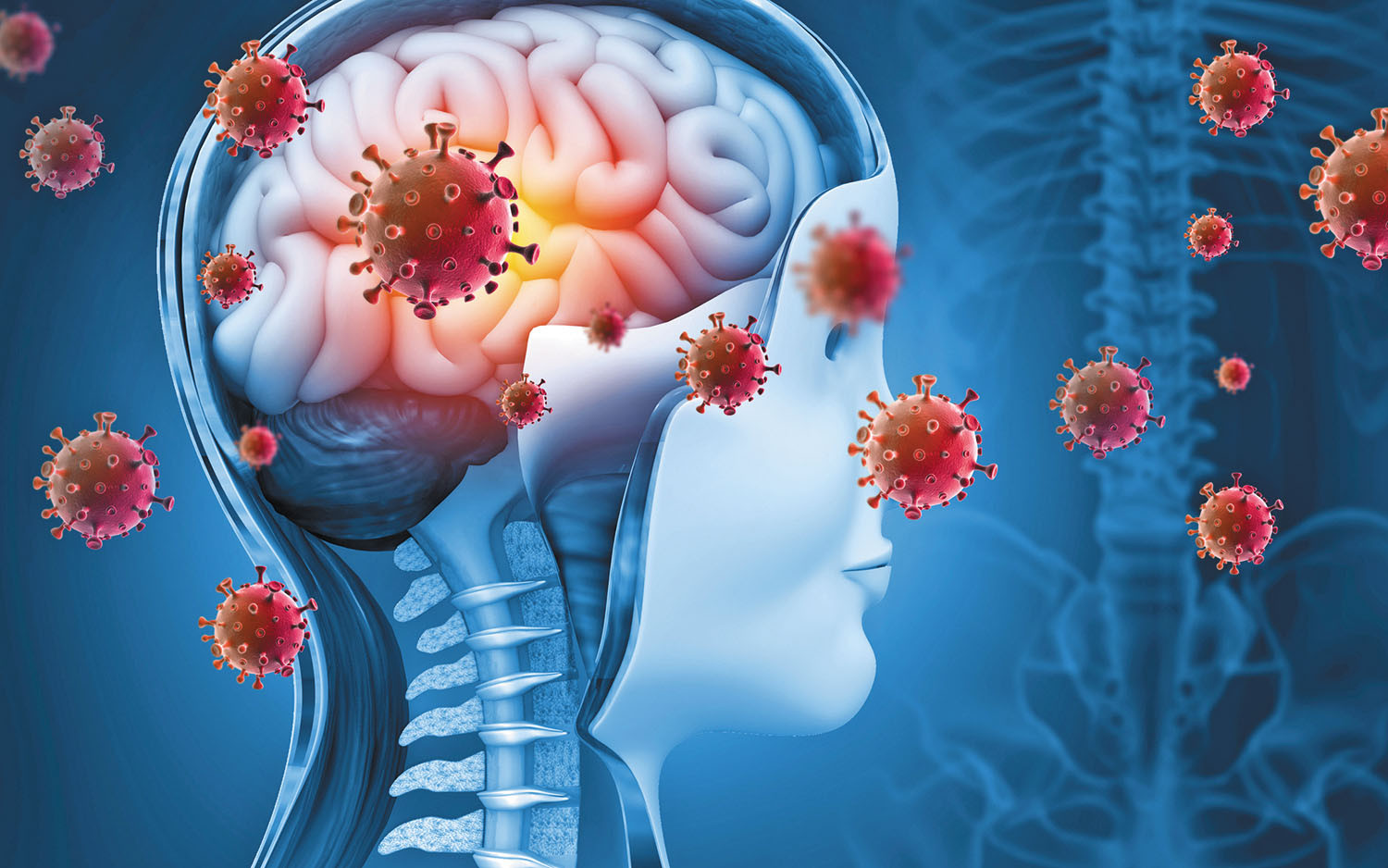Does COVID-19 damage the brain?
Ask the doctor

Q. How does COVID-19 damage the brain, and can the damage be permanent?
A. When the pandemic started in early 2020, doctors didn't know much yet about COVID and did not think it affected the brain. Boy, were we wrong!
We now know that, unfortunately, COVID can damage the brain in many ways. When people first become sick from the virus, they may develop encephalitis — inflammation of the brain — causing confusion, difficulty concentrating, and memory problems. COVID also can trigger the onset of new psychological disorders such as severe depression or anxiety. It can even cause people to become psychotic — to see and hear things that aren't there and to believe things that aren't true. It often damages the brain's autonomic nervous system, leading to abnormalities in heart rate and blood pressure.
In addition, the virus that causes COVID can infect and injure the linings of blood vessels and make blood clot more easily. These two things can lead to strokes and heart attacks, even in young people. A perfectly healthy 30-year-old son of a friend of mine experienced multiple strokes when he got COVID. COVID-related strokes can cause permanent difficulty in speaking or understanding speech, weakness on one side of the body, and other symptoms.
Even if people escape brain damage during the initial attack of COVID-19, they remain at considerably greater risk of various brain conditions, including strokes, depression, anxiety, and psychosis for the next several years.
People who were initially severely ill with COVID are at much greater risk for cognitive decline after they recover. Even people who were less severely ill remain at a somewhat greater risk. A large study of MRI scans taken before and then again after people got COVID showed that COVID can actually shrink the brain somewhat.
Finally, the lingering symptoms of fatigue, pain, and difficulty thinking that can last for several years after COVID — called long COVID or post-acute COVID syndrome — may well be caused by ongoing low-grade brain inflammation caused by the virus.
Fortunately, most people who get COVID don't suffer damage to the brain. But some do, and even people who initially get just mild COVID symptoms are vulnerable. So COVID's potential to damage the brain is just one more reason to do everything we can to avoid getting this disease. Masks and social distancing still are important, in crowded, indoor public spaces. In particular, vaccines have not only greatly reduced the risk of getting COVID and of becoming seriously ill from COVID; they also reduce the risk of suffering long-term damage from COVID, including damage to the brain.
Image: © Mohammed Haneefa Nizamudeen/Getty Images
About the Author

Anthony L. Komaroff, MD, Editor in Chief, Harvard Health Letter; Editorial Advisory Board Member, Harvard Health Publishing
Disclaimer:
As a service to our readers, Harvard Health Publishing provides access to our library of archived content. Please note the date of last review or update on all articles.
No content on this site, regardless of date, should ever be used as a substitute for direct medical advice from your doctor or other qualified clinician.
















